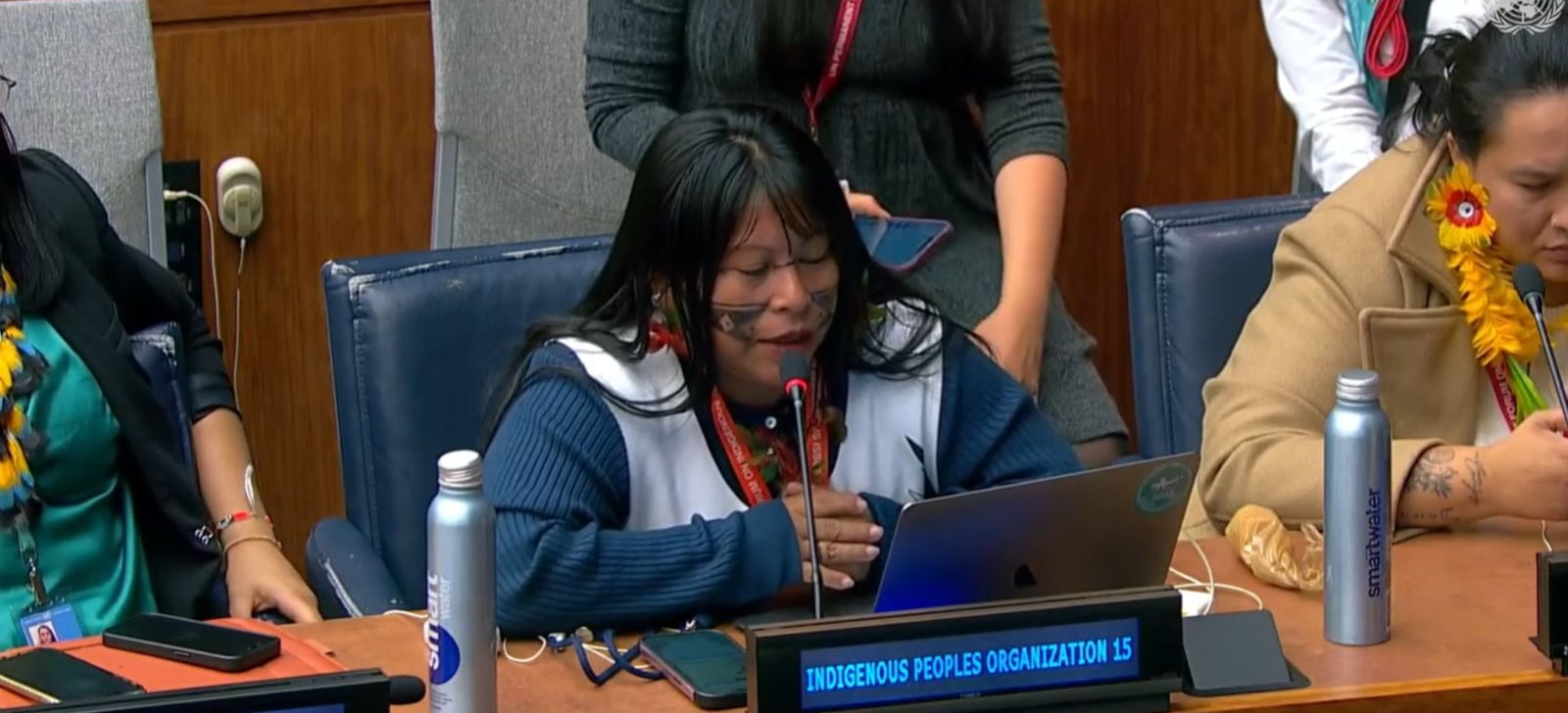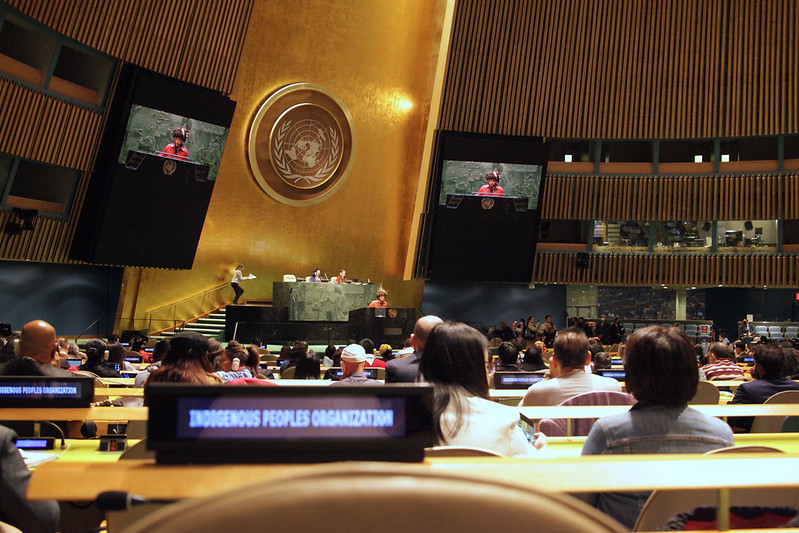At the UN, Indigenous leader denounces rights violations in the Amazon
22 de April de 2025

By Fabyo Cruz – From Cenarium
BELÉM (PA) – During the second session of the United Nations (UN) Permanent Forum on Indigenous Issues, held on Monday 21st in New York, indigenous leader Alessandra Korap Munduruku delivered a speech denouncing the presence of companies, banks, and illegal activities on the lands of the Munduruku people in Pará.
“They pollute our waters, destroy the forest, threaten us with death and commit acts of violence,” declared the activist, who was interrupted shortly before concluding her speech due to procedural reasons.
The speech took place during an afternoon dedicated to the leadership of indigenous women in their peoples’ struggles. Alessandra joined female leaders from various parts of the world to raise awareness of the violence faced in their territories and the organised resistance led by their communities.
Before travelling to the United States, Alessandra had been with her people at a blockade on the BR-230, which began on 25 March, in protest against Law 14.701/2023, known as the Temporal Framework Law. The legislation, considered unconstitutional by indigenous and human rights organisations, paves the way for the exploitation of indigenous lands without prior consultation with the affected communities.
After two weeks of road blockade, a delegation, which also included around 100 Guarani Kaiowá leaders, was received by Minister Gilmar Mendes of the Federal Supreme Court (STF), where they delivered an official letter demanding the end of the Conciliation Table and the repeal of the legislation.
UN Forum
Alessandra Korap’s presence at the event is part of the Forum’s Programme of Work, which in its 24th edition brings together indigenous leaders from across Latin America, such as Ninawa Huni Kui and Julio Cusurichi Palácios, as well as representatives from the Indigenous Missionary Council (Cimi) and the Pan-Amazonian Ecclesial Network (Repam). Over the coming weeks, until 2 May, participants will be involved in public statements, bilateral dialogues and coordination with international organisations.

The central theme of this year’s session is the implementation of the United Nations Declaration on the Rights of Indigenous Peoples (UNDRIP) in UN Member States and within the UN system itself, with a focus on identifying good practices and the challenges faced. The Permanent Forum is one of three United Nations mechanisms dedicated exclusively to indigenous issues.

